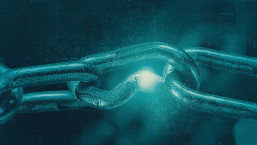Toothbrush? Check. Towel? Check. Computer, smartphone, tablet? Check. If you are one of those travelers who can’t hit the road without having all the tech gadgets in your suitcase, then you should also be aware of the risks that lurk in the ‘shadows’ of public internet connections. It is important to be cyber safe.
But don’t worry, there are ways to protect yourself from the sticky hands of cybercriminals. A few years ago, Stephen Cobb and other ESET experts put together a short guide that we have refreshed to help you travel safely and keep all your data and devices protected:
- Make sure that your laptop and your mobile devices are running a fully updated operating system, have the latest software installed and are protected reputable security solution before you go on the road.
- Backup your data before you leave your home and store the backup in a safe place. Think about moving sensitive data from your laptop hard drive to an encrypted external storage while you are on vacation.
- Never leave your devices unattended in public places. With the use of an anti-theft solution you can track your missing laptop or smartphone, and, if necessary, wipe its contents remotely.
- Make sure that you have password protection and inactivity timeout engaged on all devices including laptops, tablets, and smartphones. Consider shortening the time span to minimum. Frequent logging in might be annoying, but it’s better than having your sensitive information stolen by the intruders.
- If possible, only use reputable internet services. Ask at your hotel or the place where you are staying for the name of their Wi-Fi. Then use the exact same name. Beware of scams that attempt to look similar by attaching ‘free Wi-Fi’, or something similar, to the original name.
- If the hotel internet appears to ask you to update software in order to connect, immediately disconnect and inform the person at the front desk or the owner of the place of this.
- Do not use Wi-Fi connections that are not encrypted with WPA2. Anything with lower standards is simply not safe enough and can be compromised relatively easy. Disconnect from the Wi-Fi if you’re not using the connection.
- If you have to use public Wi-Fi to connect to your company network, always use a virtual private network.
- If it’s not necessary, avoid online banking and shopping when you’re using public Wi-Fi. If you must bank or shop, it is far safer to use your data plan and create your own hotspot than to use public Wi-Fi!
- If you are not using an antivirus solution and suspect your laptop has been infected, you can use the free ESET Online Scanner, which doesn’t require installation and can be used to detect and remove malware on-the-go.




